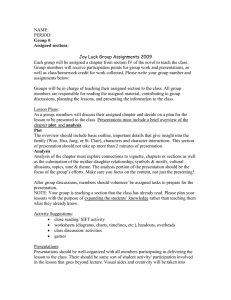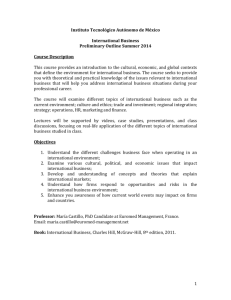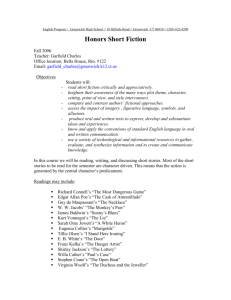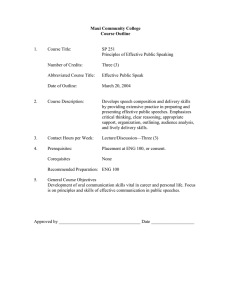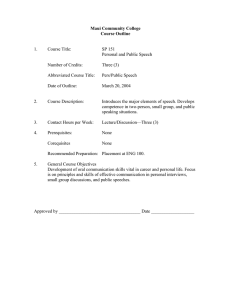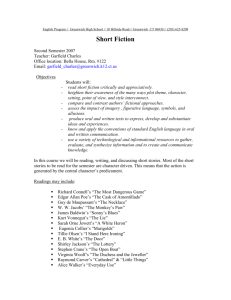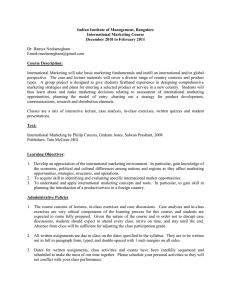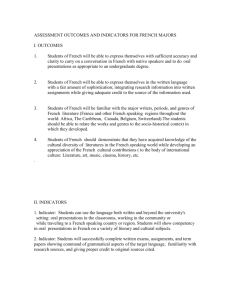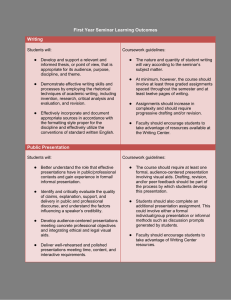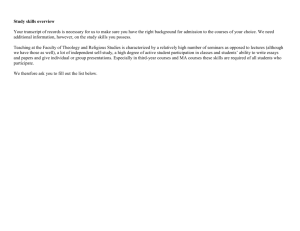International Marketing Management
advertisement
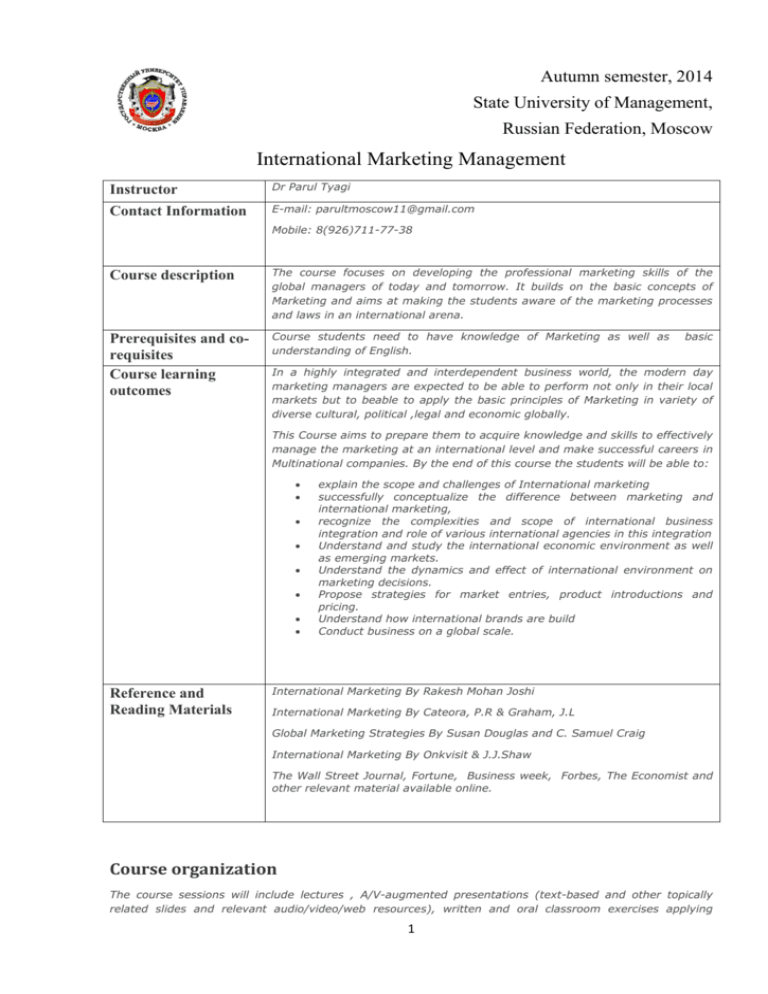
Autumn semester, 2014 State University of Management, Russian Federation, Moscow International Marketing Management Instructor Dr Parul Tyagi Contact Information E-mail: parultmoscow11@gmail.com Mobile: 8(926)711-77-38 Course description The course focuses on developing the professional marketing skills of the global managers of today and tomorrow. It builds on the basic concepts of Marketing and aims at making the students aware of the marketing processes and laws in an international arena. Prerequisites and corequisites Course learning outcomes Course students need to have knowledge of Marketing as well as understanding of English. basic In a highly integrated and interdependent business world, the modern day marketing managers are expected to be able to perform not only in their local markets but to beable to apply the basic principles of Marketing in variety of diverse cultural, political ,legal and economic globally. This Course aims to prepare them to acquire knowledge and skills to effectively manage the marketing at an international level and make successful careers in Multinational companies. By the end of this course the students will be able to: Reference and Reading Materials explain the scope and challenges of International marketing successfully conceptualize the difference between marketing and international marketing, recognize the complexities and scope of international business integration and role of various international agencies in this integration Understand and study the international economic environment as well as emerging markets. Understand the dynamics and effect of international environment on marketing decisions. Propose strategies for market entries, product introductions and pricing. Understand how international brands are build Conduct business on a global scale. International Marketing By Rakesh Mohan Joshi International Marketing By Cateora, P.R & Graham, J.L Global Marketing Strategies By Susan Douglas and C. Samuel Craig International Marketing By Onkvisit & J.J.Shaw The Wall Street Journal, Fortune, Business week, Forbes, The Economist and other relevant material available online. Course organization The course sessions will include lectures , A/V-augmented presentations (text-based and other topically related slides and relevant audio/video/web resources), written and oral classroom exercises applying 1 course concepts, small group and classroom discussions, student presentations of individual and group assignments based on course units, with emphasis on engaging students in learning by doing. Tentative Class Schedule* Week Topics Preparation 1 Concept of International Marketing: Marketing and globalization, evolution of global marketing, concept of international marketing The students are expected to read at home the theory of the topics that will be discussed in the next class and do their home assignments. 2 Process of International Marketing 3 International Trade: its composition and trends. Emerging opportunities in international markets Discussion: Global Politics and Trade 4-5 World Trade Organization and other International organizations fostering trade globally: their establishment and role. Trade associations and agreements. group presentations on international organizations and trade blocs 6-7 Scanning the environment Team presentation: Country environment Analysis 8 9-10 11-12 International International Marketing opportunity analysis. Presentation: Develop a marketing plan for a product or service economic Research Tests, projects, assignments and Decision making process for International Markets Entry strategies for International Market 13 Product Market 14 Promotion and International markets strategies for Presentation: international market entry strategy for a product or service International Distribution in *Note: this table shows only the "tentative" schedule. The schedule may be the subject for change. Evaluation and grading policy Type of work Percentage Classroom Participation 25% In-class Personal Presentation 35% Written assignments 15% Final Examination 25% 2 Discussion Topic: To Adapt or Not To Adapt. Discussion: Managing Cultural differences and Marketing Blunders Classroom Participation will include active participation of students in discussions, debates, case study analysis, and presentations. In-class Personal Presentation will be given by each student on given topics as per the course requirement. Written assignment will be given as at home tasks from time to time. Final Examination will be the term end assessment. * Grade system of State University of Management, Moscow, Russia: 5 – excellent, 4 – good, 3 – average, 2 – below average (not enough to pass the test). Course policies and expectations Students are expected be very regular and participative in class. Use of mobiles phones for instant messaging, or text messaging anyone or surfing the Internet during class is prohibited. Late coming, walking out in the middle of the class or leaving early for any reason is discouraged. Students must avoid talking, whispering and distracting the class. Students are expected to listen attentively, take notes, and manage their gestures and posture to convey interest and competence. 3
